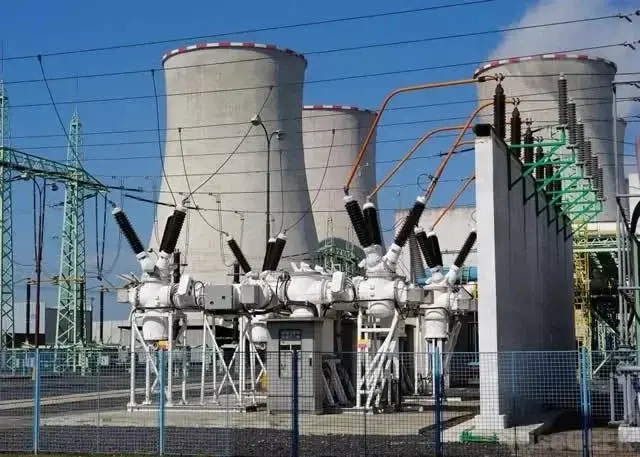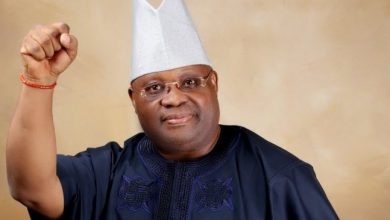
Power generation companies have rejected contract offers from the Federal Government requiring them to accept 50 percent of the total sum of debt owed to them for electricity supplied to the national grid.
Described as a 50 percent “haircut”, the proposed contracts were sent out to each power generation company with the exception of Azura Power West Africa.
The government proposed to pay the companies about N2.4 trillion or 49.9 percent of the total debt.
Government debt to the GenCos rose to over N5 trillion at the end of June with President Bola Tinubu agreeing to pay off the debt through bond issuance during a meeting with the companies in July.
Following the approval of the proposal by the Federal Executive Council in August, top government officials met with the owners of the GenCos in early October with the Special Adviser on Energy, Olu Verrheijen announcing that an agreement has been reached with the companies on the debt repayment model.
In furtherance to this, the government on October 16, 2025 sent out two contract documents to the GenCos which amongst other clauses requested them to forfeit 50 percent of the debt owed to them as final payment.
Copies of the documents, sighted by Vanguard, titled “NBET deed of settlement” and “Deed of novation”, amongst other things sort to transfer government debt from the Nigerian Bulk Electricity Trading Plc (NBET) to a new special purpose vehicle named NBET Bond Finance Company Plc.
Contracts read in parts: “GenCo hereby accepts the sum of (“Settlement Amount”) as the full and final settlement of the outstanding Legacy Debt, including any interest thereon and any other claim for losses whether present or future and whether known or unknown in respect of the Legacy Debt.
“For the avoidance of doubt, GenCo agrees that the Settlement Amount as a compromise of its rights to the Legacy Debt, hereby (i.e., from the date of this Agreement), extinguishes its right to any Claims to the Legacy Debt including any contractual claims for losses whatsoever and howsoever arising whether from deemed capacity, true ups and interest on delayed payment of substantive invoice amounts, true-up compensations or deemed capacity payments referenced in Appendix A or elsewhere.
“The Parties agree that subject to prompt payment of the Settlement Amount as contemplated in the payment structure under Clause 3 below and Appendix B, the Settlement Amount shall not bear any interest or give rise to any further Claims for any losses whatsoever.
“NBET’s obligation to pay the Settlement Amount to GenCo shall be novated to Bond SPV via the Novation Agreement and upon its execution, Bond SPV shall be solely responsible for payment of the Settlement Amount.
“The Parties acknowledge and are aligned on the PPSFRP’s plan for the Settlement Amount to be paid by Bond SPV solely from the outcome of an FGN-backed public bond issuance programme that will be conducted by the Bond SPV (“Bond Programme”).
“These bond proceeds are expected in successive issuance phases and tranches that will have an impact on the exact timeline for payment of the Settlement Amount in installments (where applicable)”.
However, a source at one of the GenCos told Vanguard that the deal which was being pushed through by the Presidential Power Sector Debt Reduction Plan Committee was in bad faith and calculated to undermine the pledge by President Tinubu to resolve the financial crisis facing the Nigerian Electricity Supply Industry (NESI).
The source who did not want to be named for fear of victimization noted that at the meeting between the Ministers of Finance and Power, the Special Adviser to the President on Energy and selected Chairmen of power generation companies, the 50 percent offer was roundly rejected.
“For them now to draw up individual contracts for the companies and force it down on them is quite unfortunate. The GenCos have again rejected it and we are insisting that the government should pay off the debt in full”, the source added.
The source explained that after the GenCos rejected the offer, the companies presented two potential approaches to the government which the contract documents ignored.
According to the source, the first option was for the government to immediately pay N2.4 trillion to the GenCos with the balance deferred to later dates. The second option was for the application of a 10 percent haircut on interest relating to energy and capacity delivered while paying deemed capacity and true-up in full.
Another GenCo source which confirmed the contract offers said the companies were given just five days to accept the offer.
“The contract papers were sent on October 16, with companies given October 21, as the deadline to respond to the offer. As far as I know, all the GenCos rejected it”.
Additional documents prepared by the Presidential Power Sector Debt Reduction Plan Committee on frequently asked questions provided an answer to the question “will GenCos be required to waive claims?
“Yes. Disputed or unsubstantiated claims, including deemed capacity and excessive interest, will be waived. Litigation or arbitration claims may also be waived under final settlement agreements. This is aimed at achieving a clean break and ensuring that settlement restores confidence and stability across the NESI value chain”.
On what would happen if nothing was done (about the debt), the document said: “Without this debt settlement and refinancing, financial distress within the NESI value chain would worsen, leading to reduced power generation and ultimately low supply to customers, higher risks of system collapse, and further erosion of investor confidence”.
On why the government proposal was the most practical solution, it stated: “The PPSDRP provides immediate liquidity to GenCos and other critical service providers within the NESI value chain, funding to improve energy supply systems, restores credibility to government commitments, and creates a platform for broader NESI reforms to take root”.
Speaking on the deal offered by the government, energy market expert, Lanre Elatuyi said it sends the wrong signal to investors.
Elatuyi noted that power generation companies were struggling to remain in business, adding that the government has an obligation to its commitment to the operators.
“Though I haven’t heard about this, if this is true, then we are sending a very wrong signal that will deter investments in the electricity sector.
“GenCos are presently faced with liquidity issues that affect optimal performance and ability to expand their capacities. With this haircut, their situations get worsened and the Nigerian electricity supply industry will soon experience serious resource adequacy problems.
“Also, we may experience high generation costs as GenCos will try to raise their marginal cost to accommodate anticipated loss of revenue”, he explained.
He pointed out that the government “should not expect more investors to come to a sector where cost recovery is very uncertain”.



